Sudan. The forgotten catastrophe.
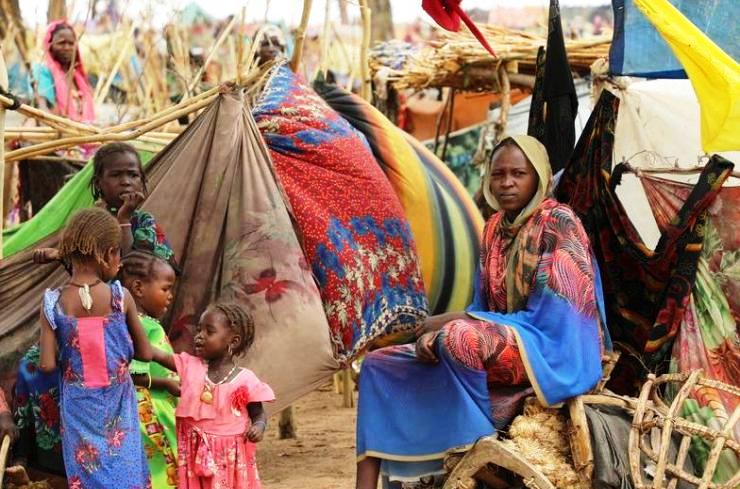
While the conflicts in Gaza and Ukraine are attracting most media and Western attention, a potentially greater tragedy is threatening
Sudan where a civil war has been raging since April 2023 with
no peace in sight.
For more than ten months Sudan has been torn apart by a civil war that has already made 12,000 victims according to the UN, a figure probably widely underestimated since large portions of the country have been cut off from the rest of the world and nobody knows exactly what happened there. So far, the war has displaced 7.1 million people, including 1.5 million in neighbouring countries, according to the UN Secretary-General spokesman Stéphane Dujarric, who refers to the tragedy as “the world’s largest displacement crisis”.
This civil war opposes the Sudan Armed Forces (SAF) led by Gen Abdel Fattah al-Burhan to the Rapid Support Forces (RSF) which grew from the Janjaweed militia that terrorized the Western Darfur region two decades ago and are now led by Gen Mohamed Hamdan Dagalo, known as “Hemedti”. Both groups were allies when they overthrew in 2019, President Omar al-Bashir whose dictatorship was seriously challenged by the mobilization of pro-democracy activists.
Two years later, both generals cracked down on pro-democracy protesters, putting an end to the transition towards democracy and took power together before they eventually fell out over the timetable for the RSF to be integrated into the army.
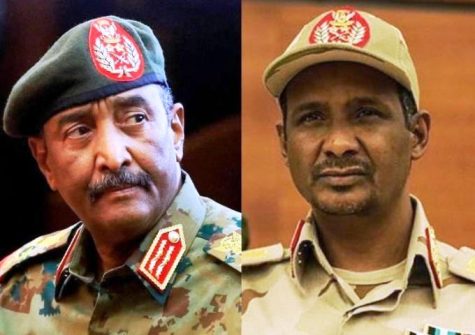
Sudanese leader General Abdel Fattah Al-Burhan (R) and Gen. Mohammed Hamdan Dagalo – known as Hemedti – head of the Rapid Support Forces (RSF) [X]
The Wad Madani battle generated a humanitarian disaster. According to the International Committee of the Red Cross, the city turned “into another death trap” for civilians, including 300,000 people who had fled Khartoum where hospitals had been shelled, where airstrikes hit residential neighbourhoods while both sides were perpetrating rapes, kidnappings and murders of civilians. Meanwhile, in Western Sudan, fighting took the form of ethnic cleansing as militias have razed villages and executed families.
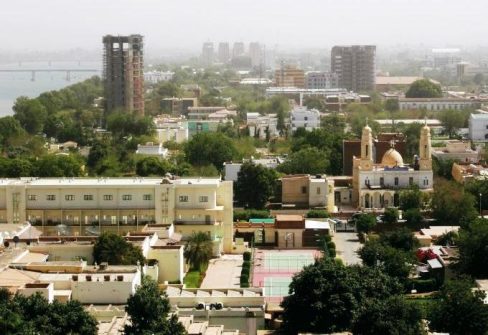
The view of Khartoum.
By mid-December, the RSF controlled most of the capital and advanced along the motorway towards Wad Madani, taking village after village after having seized four regional capitals in Western Darfur and several cities in central Sudan. Reporters describe scenes of “total panic” as the RSF paramilitary move South, looting cars, lorries and tractors. Since mid-December, the paramilitary moved near Senna, 140 kilometres south of Wad Madani. According to The Washington Post, both warring sides forcibly recruit civilians, including refugees who return from camps in the Amhara region of Ethiopia where conditions are extremely difficult. There are countless reports that both sides are committing war crimes. Residents of RSF-controlled areas report mass rapes killings and detentions including the looting of banks in Khartoum while SAF has also accused of widespread looting from homes in Omdurman on the other bank of the Nile on 13 December in the only part of the city they still control. Ethnic cleansing has also been perpetrated by the SAF against members of the Rizeigat community, which makes up the core of the RSF. One explanation for the looting by SAF soldiers is that their regular army salaries are low. Fighters can earn 10 times more in the RSF, which controls gold mines in Western Darfur.
The humanitarian toll is enormous. The UN said more than 20 million children have not been at school since the beginning of the war. About 18 million people face acute hunger (including half of the population of Khartoum), and nearly 5 million in emergency levels. According to the UN, families in conflict zones could experience famine-like hunger by next summer. Altogether, some 30 million people, almost two-thirds of the population, need assistance in Sudan.
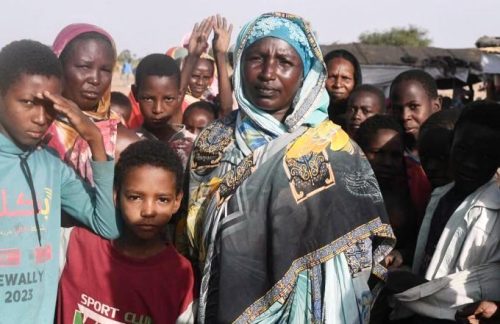
Sudanese refugees wait to be registered after crossing the border into the Central African Republic. UNHCR/Xavier Bourgois
The crisis is exacerbated because, in some areas such as al-Shajara, a southern Khartoum neighbourhood, the RSF had taken most supplies. Moreover, the area planted during this year’s season is 15% smaller than average and the production of sorghum and millet fell by 24% and 50% compared to 2022, according to the Food and Agriculture Organisation.
The conflict has devastated the livelihoods of millions of people. The International Monetary Fund (IMF) projected that Sudan’s real Gross Domestic Product fell by 18 per cent at the end of 2023. Besides, according to the UN, with international attention focused on Ukraine and now Israel and Gaza, necessary funding for Sudan has been falling short. The U.N.’s 2023 humanitarian response appeal for Sudan of US 2.6 billion was only one-third funded, in contrast with Ukraine, where a similar appeal has been 56% funded.
There isn’t much hope that violence will recede soon. Both armies are more or less evenly matched while foreign involvement is exacerbating the conflict and turning it into a proxy war. Saudi Arabia and Egypt back the Sudan Armed Forces, while the United Arab Emirates supports the RSF. Last November, General Yasser Atta, the SAF number two, accused Abu Dhabi of being “a mafia state” that had “taken the path of evil” by supporting General Dagalo’s Rapid Support Forces paramilitaries.
According to researcher Alex de Waal, Sheikh Mohamed bin Zayed al-Nahyane, the President of the UAE, supported indeed Dagalo because – the latter had “supplied him with paramilitaries for its war against the Houthis in Yemen”.
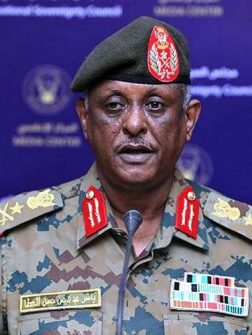
General Yasser Al-Atta, a member of the Sudanese Sovereign Council and Assistant Commander-in-Chief of the Sudanese Army, has criticized the United Arab Emirates (UAE) for providing military supplies to the Rapid Support Forces (RSF). Photo Suna
In a speech to his troops on 28 November, Atta accused the Emirates of having sent arms to the RSF via Uganda, Chad and the Central African Republic since the start of the war with the help of the Russian mercenary Wagner group. According to American sources, the gold from Darfur is being used by the RSF to finance the Wagner arms supplies operations. In retaliation, demonstrations against the Emirates took place in Khartoum and were followed by the expulsion of Sudanese diplomats by Abu Dhabi and Emirati diplomats from Sudan.
On the other side, the Emirati support to the RSF combined with Iran’s rapprochement with Saudi Arabia, which has been itself a long-time supporter of Sudanese governments, has also contributed to a resumption of the ties between Tehran and the Sudanese Armed Forces. All this could stoke the fires since Western powers fear that Iran could supply the SAF with weapons and expertise, namely with drones like those provided to the Hezbollah, Hamas, the Houthis or the Ethiopian army. This Tehran-Khartoum rapprochement is disappointing Washington which has been pushing for a normalization of diplomatic relations between Sudan and Israel before the Gaza war.
But there are other indications of an internationalization of the conflict. In October 2023, the military Africa website reported that Israeli-made LAR-160 light artillery rockets were being used by the RSF. The list of other foreign actors also includes Egypt which is the traditional ally of the Khartoum authorities and is highly likely to enhance its support for the SAF to better manage cross-border refugee flows even at the price of a deterioration of its relations with the Emirates. (Open Photo: Sudanese refugees. WFP/Eloge Mbaihondoum)
François Misser



